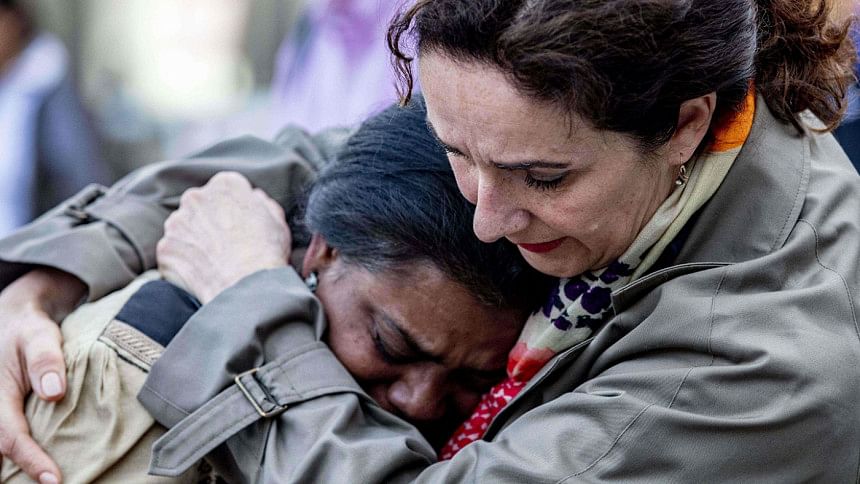More detentions as death toll in Sri Lanka attacks rises to 359

Sri Lankan police said today they had detained 18 more people for questioning over the Easter Sunday attacks on churches and hotels, claimed by the Islamic State group, as the death toll climbed again to 359.
Also read: LANKA MOURNS
The extremist Islamic State group made its claim after Sri Lankan officials said the suicide bombings in Sri Lanka were carried out in retaliation for attacks on two mosques in New Zealand that killed 50 people in March.
Police spokesman Ruwan Gunasekera said the death toll had risen to 359 from 321 overnight, with about 500 people wounded, but did not give a breakdown of casualties from the three churches and four hotels hit by the bombers.
Islamic State said through its AMAQ news agency the assaults in Sri Lanka were carried out by seven attackers but gave no evidence to support its claim of responsibility. If true, it would be one of the worst attacks carried out by the group outside Iraq and Syria.
Junior minister for defence Ruwan Wijewardene told parliament on Tuesday two Sri Lankan Islamist groups - the National Thawheed Jama'ut and Jammiyathul Millathu Ibrahim - were responsible for the blasts, which went off during Easter services and as hotels served breakfast.
Police continued searching homes across the Indian Ocean island nation overnight, leading to the detention of 18 more people. That brings the number of people taken in for questioning to close to 60, including one Syrian.
The overnight raids included areas near the Gothic-style St Sebastian church in Negombo, north of the capital, where scores were killed on Sunday, a police spokesman said. An unspecified number of people were detained in western Sri Lanka, the scene of Muslim riots in 2014.
"Search operations are going on everywhere, there is tight checking of Muslim areas," a security source said.
The Easter Sunday bombings shattered the relative calm that has existed in Buddhist-majority Sri Lanka since a civil war against mostly Hindu, ethnic Tamil separatists ended 10 years ago, and raised fears of a return to sectarian violence.
Sri Lanka's 22 million people include minority Christians, Muslims and Hindus. Until now, Christians had largely managed to avoid the worst of the island's conflict and communal tensions.
The attacks have already foreshadowed a shake-up of Sri Lankan security forces, with President Maithripala Sirisena saying on Tuesday night he planned to change some of his defence chiefs after criticism that intelligence warnings of an Easter attack were ignored.
Three sources told Reuters that Sri Lankan intelligence officials had been warned by India hours before the blasts that attacks by Islamists were imminent. It was not clear what action, if any, was taken.
Most of those killed and wounded were Sri Lankans, although government officials said 38 foreigners were also killed. That included British, US, Australian, Turkish, Indian, Chinese, Danish, Dutch and Portuguese nationals.
The UN Children's Fund said 45 children were among the dead.
Junior defence minister Wijewardene said investigators believed revenge for the March 15 mosque attacks in the New Zealand city of Christchurch was the motive but did not elaborate. The attacks during Friday prayers in Christchurch were carried out by a lone gunman.
The Sri Lankan government has imposed emergency law and an overnight curfew. It said it has also blocked online messaging services to stop the spread of inflammatory rumours that it feared could incite communal clashes.
The US Federal Bureau of Investigation is assisting with investigations.

 For all latest news, follow The Daily Star's Google News channel.
For all latest news, follow The Daily Star's Google News channel. 



Comments